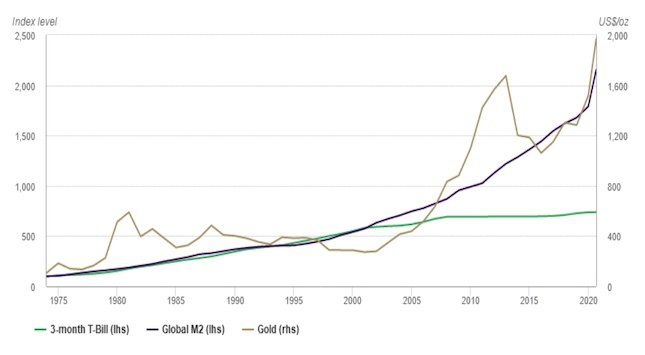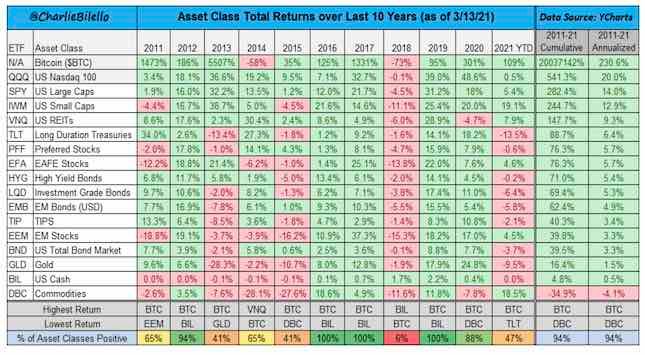The annual inflation rates in many of the world’s leading economies reached new highs.
Prices are rising, unemployment is still at a high level, and supply chain issues are persisting, all of which may have an impact on your savings.
On the other hand, because these uncertainties arise from an incomplete understanding of how the world works, they may go undetected and unnoticed, putting one’s savings at risk. In this situation, it is usually recommended that you invest rather than leave your money idle to make long-term profits during these challenging economic times.
Inflation – or an increase in the general price level in a country – weakens the value of your money, reducing your purchasing power. Despite this, there are several investment options available to help you protect your money during these periods of uncertainty, and better yet, profit from this seemingly unfavorable situation if you play your cards right.
You May Read: How to Prepare for an IRS Tax Audit
An Economic Collapse and/or Hyperinflation is on the Cards
In recent months, annual inflation has been more than doubling the Fed’s target in the United States, and Goldman Sachs economists in a research note warned that inflation is likely to grow worse before it gets better and that it might linger far into next year.
According to data released by the National Association for Business Economics (NABE), annual inflation in the United States would continue over the Federal Reserve’s target of 2% during the next three years. Inflation is defined as a sustained rise in the price of goods and services that reduces people’s purchasing power.
It is determined by the interaction of aggregate demand and aggregate supply in the economy which means that when the amount of money spent in the economy surpasses the amount that can be produced, prices start to increase. It diminishes the value of money that is kept idle over time, so whether you like it or not, your savings are going to be negatively impacted if not invested wisely.
You May Read: Business Valuation Calculator
Figure 1: Third quarter annual inflation rate (highest and lowest inflation across 46 countries)

As the struggle against inflation heats up, the Federal Reserve predicts three-quarter-point interest rate hikes. Central banks around the world are gearing up to follow this same path because of high inflation. That being said, these measures are highly unlikely to curb inflation in the short to medium term, which is acknowledged by central bankers themselves.
This also means that as an investor, your job is going to get even more difficult as you would have to fight off inflation and high-interest rates. If you have invested only in stocks and bonds, it is high time to consider alternative investments as stocks and bonds are likely to come under a lot of pressure, potentially hurting your portfolio.
You May Read: Growth in Commercial Fleet Rental Market
Investment Options for Capital Growth Amid Inflationary Pressure
The financial market has evolved over time and now offers a variety of investment options for capital growth during economic uncertainty. Investing in gold is one of the most popular ways to protect money against inflation. Gold is regarded as a safe haven asset because of its low volatility, making it an ideal buffer against financial crises.
Gold has historically outperformed during downturns and periods of high inflation, with gold prices climbing 15% on average in years when inflation was greater than 3% (inflation is currently much higher than 3%). Gold has also been more effective than U.S. T-bills (treasuries) in keeping up with the global money supply, allowing investors to better conserve their funds.
Figure 2: Global M2 growth, U.S. 3m T-bill total returns, and gold price from 1975-2020

As illustrated above, over the last 45 years, gold has more often than not outpaced inflation, yielding positive returns for investors.
Another asset class that has captivated the interest of both individual and institutional investors in recent years is digital currencies. During times of economic instability, Bitcoin and Ethereum, for example, have proven to be remarkably resilient.
In comparison to bonds and other fixed-income assets, analysts feel that investing in cryptocurrencies may protect investors from currency depreciation. Fixed-income assets, according to studies, pay less than inflation and do not create wealth during inflationary periods.
Fixed-income investors have seen a drop in returns over the last two decades anyway, and pandemic-related economic disruptions have pushed yields even lower. Given the significant risk of currency depreciation and poor performance of government and fixed-income securities, it’s reasonable to expect Bitcoin and other cryptocurrencies to have a banner year in 2022, similar to how these assets posted stellar returns in 2020. As illustrated below, Bitcoin was the best-performing asset class in pandemic-stricken 2020. In fact, Bitcoin was the best-performing asset class for the 10 years ended March 31, 2021.
You May Read: How to Diversify Your Savings
Figure 3: Asset class total returns for the 10 years ended March 13, 2021

Bitcoin, like gold, cannot be depreciated by central bank printing and the fact that it is easily exchangeable around the world means that its value can be expected to rise in the future, especially given the finite supply of total coins.
Conclusion
Inflation and other economic issues will continue to be exacerbated by ongoing disruptions in global supply chains, the emergence of new COVID-19 variants, and turbulence in labor markets.
The Federal Reserve has also claimed that resuming normalcy in many sectors of the economy will take time. Given these challenges, prudent investors need to diversify into new investment options to generate market-beating returns in the current year and beyond.
As every individual’s financial goals and level of investment risk tolerance are different, they must diversify their investments carefully.
The financial advisor assists investors in transferring their cash out of the present financial system and into hyperinflation/collapse-resistant assets such as precious metals (gold/silver) and crypto, allowing them to become financially self-sufficient.
They also offer high-quality learning materials about building a portfolio with cryptocurrencies, as well as DeFi yield methods, and NFTs.

